Since Russia invaded Georgia in the South Caucasus in 2008, the victims of the conflict have found little in the way of justice — until now. Developments at the International Criminal Court (ICC), along with recent strides in the European legal world and in the United States, suggest that meaningful progress may finally be underway for those whose lives were upended by the conflict. Hopefully, Georgia’s worsening democracy crisis will not affect this progress.
The August War
For weeks leading up to August 8, 2008, forces of the internationally unrecognized “Republic of South Ossetia” in northern Georgia shelled ethnic Georgian villages in the breakaway region and provoked Georgian peacekeeping contingents with sporadic arms fire. After Georgian troops launched an offensive on South Ossetia to put a stop to the shelling, Russian troops backing the separatists invaded Georgia by land, air, and sea.
The brunt of the fighting lasted for just five days until French President Nicolas Sarkozy negotiated a ceasefire between the warring parties on August 12. However, Russian troops remained in several Georgian cities and towns for nearly two months after the ceasefire. To this day, Russia exercises control over South Ossetia and Abkhazia, amounting to a quarter of Georgia’s territory.
Official numbers on casualties and people displaced by the conflict vary. The Georgian and Russian governments reported several hundred military and civilian losses. In addition, the government in Tbilisi and international observers estimate that the fighting displaced anywhere between 100,000 and 200,000 civilians in South Ossetia, Abkhazia, and elsewhere in Georgia. Of them, 20,000 to 30,000 have been unable to return to their homes in the breakaway regions. South Ossetian separatist authorities targeted ethnic Georgian villages in the area during and after open hostilities ceased. Since the conflict ended, separatist and Russian forces have controlled the de facto borders between Georgia, South Ossetia, and Abkhazia, preventing the repatriation of ethnic Georgian citizens who lived there before the war.
The August War, as it would come to be called, was the first interstate armed conflict on European soil in the 21st century. Despite its brevity, the war was of great consequence both within and beyond the Caucasus. It presaged Russia’s increasingly aggressive regional posture and its recalcitrance towards international norms. In addition, the international response to the conflict outlined the limits of Western support for North Atlantic Treaty Organization (NATO) candidate states afflicted by Russian aggression.
National and International Quests for Justice
Two national investigations opened by Tbilisi into crimes committed against Georgian civilians during the conflict failed to produce actionable results. Government officials claimed that a lack of access to South Ossetia and Abkhazia, where most of the crimes likely occurred, and noncompliance by Moscow hamstrung their efforts. As a result, more than a decade of anguish has left many Georgians feeling forgotten by Tbilisi and the international community.
However, recent developments in international legal avenues and in the United States have renewed hope for justice among victims of the conflict. These developments suggest that legal and political recognition of the victims’ plight, along with reparations to help recoup the losses suffered in 2008 and since, are finally moving within reach.
In 2016, the ICC commenced its investigation into war crimes committed during and after the 2008 war. Georgia is a state party to the ICC, meaning that the court can open investigations into crimes committed on Georgian soil as a complement to stalled national investigations. The collective reports of over 6,000 witnesses, many of which were collected and presented to The Hague by civil society groups and nongovernmental organizations, prompted the ICC to act.
While the opening of the ICC’s investigation was momentous in Georgia, challenges remain several years later. The principal limits on the court’s capabilities are the voluntary participation of its members and its lack of a supranational enforcement mechanism. The court boasts 123 state parties, countries whose governments have ratified the Rome Statute. Much of Europe, Latin America, and Africa are parties, while many others are signatories nominally in the process of ratifying the Rome Statute, the treaty that established the court in 1998.
Notably missing from the list are several of the world’s largest and most powerful nations. China and India, for example, are not even signatories. The United States, a signatory but not a state party, has a long history of rejecting the ICC’s legitimacy despite its own central role in the original drafting of the Rome Statute. Meanwhile, other countries have withdrawn from the ICC in response to the court’s opening of investigations.
Furthermore, the supranational nature of the court limits its ability to enforce arrest warrants. ICC prosecutors are wholly dependent on the national justice systems of state parties to turn over individuals found guilty of crimes within the ICC’s purview. Even among state parties, compliance is far from assured. Of 38 arrest warrants issued by the court, 13 defendants are still at large.
These enduring limitations are on full display in the ICC’s investigation into the August War. Russia, a signatory since 2000, withdrew from the ratification process in 2016 after the ICC opened its Georgia investigation and condemned Russia’s annexation of Crimea. Its withdrawal ensured that the responsibility would fall to Moscow to arrest any Russian or South Ossetian individuals found by the ICC to be guilty of war crimes.
The investigation’s difficulties have not been limited to noncompliance on the Russian and South Ossetian side. Alleged reticence about the investigation’s parameters on the part of ICC investigators has caused confusion and mistrust of the court among civil society groups and victims in Georgia. The relationship between suspended national proceedings and the ICC process has also remained obscure at times, frustrating efforts by victims and advocates to access reliable information on the investigation’s progress.
Hard-fought progress and the road ahead
Despite these challenges, the ICC investigation recently yielded a crucial win for Georgians displaced by the war. The Trust Fund for Victims (TFV), created alongside the ICC, provides assistance to individuals and communities harmed by the crimes prosecuted by the court. In November 2020, the TFV announced the approval of a three-year, 600,000 euro assistance program for victims of the conflict. Beyond material aid, the TFV’s program is another symbolic milestone for Georgians who feel neglected by their justice system and shortchanged by geopolitical maneuvering by Moscow.
Soon after the announcement of the TFV aid program, the European Court of Human Rights (ECHR) issued a landmark verdict on January 21 of this year, finding that Russia committed human rights abuses during and after the 2008 conflict. ECHR prosecutors contended that because Moscow exercised de facto control over South Ossetia and Abkhazia from August 2008 onwards, it bore responsibility for crimes committed by separatists in the breakaway regions including torture, summary executions, and violation of civilians’ freedom of movement. The Georgian prime minister took to Twitter soon after the ECHR’s announcement to celebrate the court’s decision as a victory for “each and every Georgian.”
On the opposite side of the Atlantic, the change in administrations in Washington, D.C. augurs well for progress on Georgia’s NATO aspirations and, by extension, its hopes of securing justice for the war’s victims. President Joe Biden and Secretary of State Antony Blinken are “confirmed Atlanticists” who have put the rejuvenation of U.S.-NATO ties among their top foreign policy priorities. Blinken reiterated U.S. support for Georgia’s NATO candidacy during his confirmation hearing before the Senate Foreign Relations Committee. A few days later, NATO Secretary Jens Stoltenberg and Georgian President Salome Zurabichvili held a joint press conference during which Stoltenberg hailed the reorientation of U.S. foreign policy towards Europe and applauded the ECHR’s ruling.
Greater diplomatic and political support from the West may bolster Georgia’s negotiating position and push Moscow to permit ICC investigators to operate in South Ossetia. It remains to be seen exactly what form Biden and Putin’s relationship will take, but the reestablishment of principled diplomacy, with a U.S. firm on its support for allies like Georgia, bodes well for movement in Georgia’s case at the ICC.
There are reasons for concern about Georgia’s democratic trajectory given recent internal political developments. That is deeply troubling on its own account, but also because it could distract from progress on the path towards justice for victims of the August War. Securing true reparations, including the arrest of all parties guilty of war crimes and the return of displaced Georgians to their homes in South Ossetia, remains an elusive goal. But as the aphorism goes: “The arc of the moral universe is long, but it bends towards justice.” The renewed focus of international legal institutions on the August War’s victims, as well as the return of diplomatic support from the United States and NATO, suggest advances in the right direction.

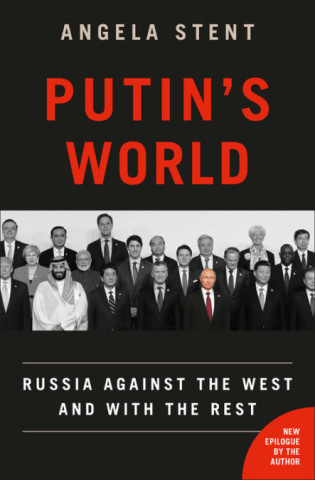
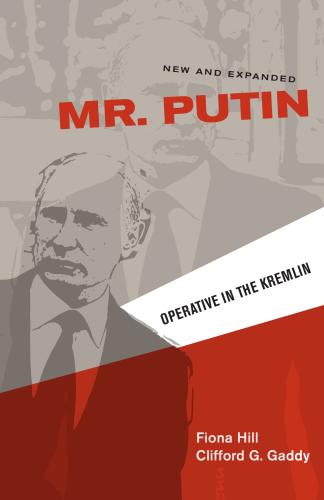
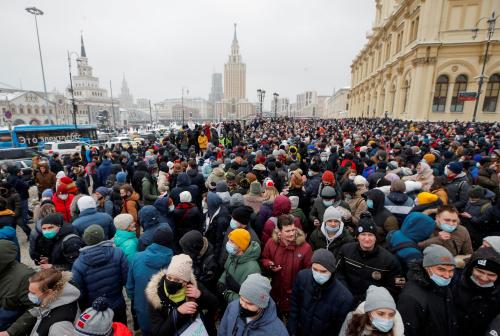
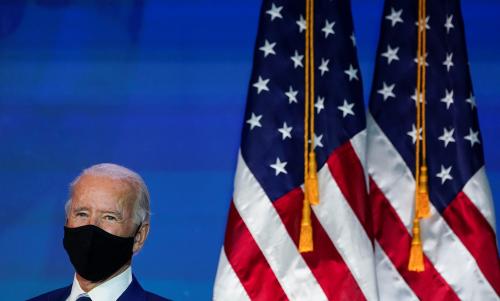
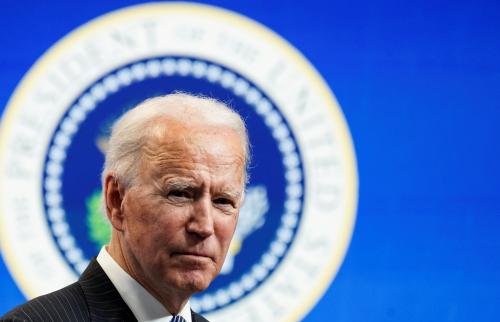




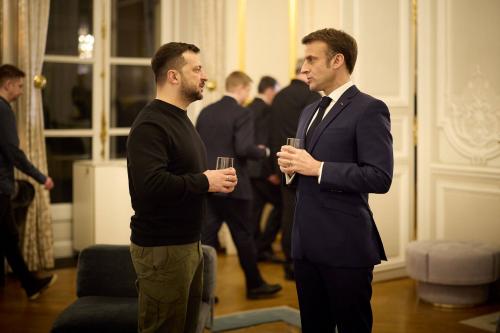
Commentary
In Georgia, an up-and-down road to justice for victims of the August War
March 3, 2021